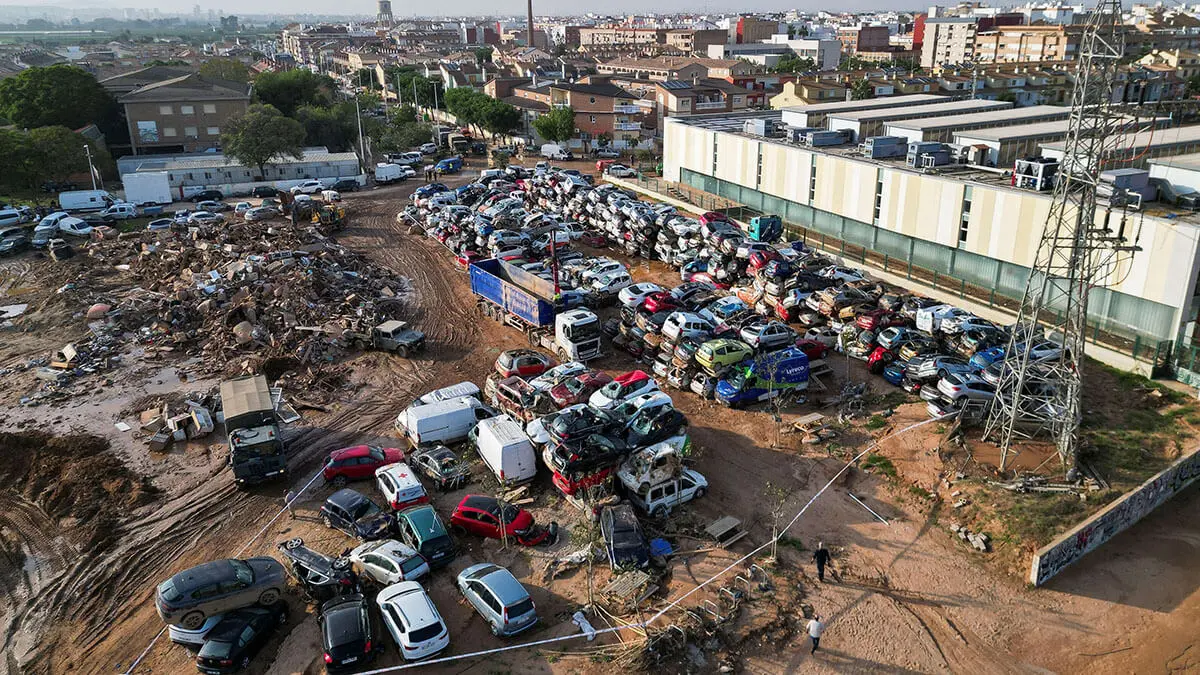DANA brings a new political party out of the mire

A new political party, ‘Avante Dos Tercios’, has emerged from the mud and rubble, extending the slogan ‘only the people can save the people’, which was launched at the beginning of the year but has now taken shape. Promoted by retired soldiers who want to leave their children and grandchildren the lessons of this bitter experience, the newly created social movement, which presents itself as a political party, focuses on one basic demand: to reform the Spanish Constitution.
Reflection on the DANA, the lack of foresight, the lack of coordination, the necessary fury that was as righteous as it was blind, the justifications of one and all, and the absence of responsibility have allowed Spaniards to see that the State of the Autonomous Regions has not worked, and that the 1978 Constitution has become largely obsolete.
It fulfilled its function, and was necessary to overcome a difficult period for Spain, in which freedom and democracy were absent. Today, almost half a century later, it has not been able to respond to the needs.
This is not the first time that the State of Autonomies has failed. It happened before in the forest fire in Guadalajara in July 2005 in which 11 people died, almost the entire team sent to put out the fire. There was a lack of coordination and Castilla La Mancha was left alone in the face of the fire.
This was similar to what happened years later in the Sierra de la Culebra and in Losacio, in the province of Zamora, when the fire devastated 34,000 hectares of a natural park and another 30,000 hectares of mountainous area. This time there were no casualties, but the lack of coordination was total. The Junta de Castilla y León did not have sufficient resources. Solidarity’ from other Autonomous Communities only arrived four days later.
The State of the Autonomous Regions also failed in the Lorca earthquake in 2011, when the Community of Murcia was left alone in the face of the prevailing desolation. In the first moments, it only received solidarity aid from the neighbouring province of Almería, at the initiative of the people, trade unions and the business community. But Almería had no jurisdiction to intervene in Lorca, because it depended on the Junta de Andalucía, which could not intervene in another Autonomous Community without the authorisation of the national government.
One of the most notorious catastrophes that the State of the Autonomous Regions has had to deal with was the Prestige, a 60,000 ton oil spill in Galicia caused by the sinking of the ship carrying the oil in 2002. The disaster affected 2,000 kilometres of the Spanish, French and Portuguese coasts, and also showed the inadequacy of the state's aid and prevention operations. The protocols did not work and all the administrations, from the national government to the regional government of Galicia and the local councils concerned, showed their incompetence and their Pilate-like reaction of washing their hands of the disaster and blaming others.
With this background in everyone's memory, in the face of the new catastrophe of the DANA in Valencia, some citizens, army retirees, professionals and ex-officials have wanted to take this step forward and form a party to regenerate the structure and functioning of the Spanish state.
‘Avante Dos Tercios’, in addition to preaching the profound reform of the Constitution, giving the central government the prerogatives in terms of the fundamental powers that correspond to it - Armed Forces, security forces, foreign policy, resources, education, health, immigration, tax collection, pensions, etc. - defends the need to minimise the role of the regions and provinces, which should confine themselves to cultural, linguistic and social policy. Juan Lamas, Juan Muñoz Ajo and Luis Baile Roy, its organisers, are convinced that the Spanish people, who have shown their high degree of solidarity and dedication, will be able to overcome this test and regain Spain's prestige in its natural European and Mediterranean environment, and in the world.



